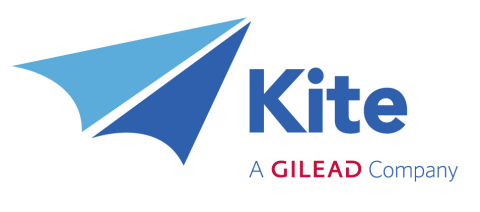EMA starts review of second CAR-T from Gilead’s Kite unit

The EU regulator has started its review of a second CAR-T from Gilead Sciences’ Kite Pharma subsidiary, setting up a possible approval before year-end.
Like Kite’s already-approved CAR-T Yescarta (axicabtagene ciloleucel), KTE-X19 is an anti-CD19 therapy. Unlike its predecessor, however, the new candidate is produced using a new manufacturing process that boosts its activity in diseases like B-cell lymphomas where there is a large burden of circulating tumour cells.
Kite has filed for approval of the new CAR-T in mantle cell lymphoma (MCL) on the strength of impressive data from the ZUMA-2 trial – reported at last year’s American Society of Haematology (ASH) meeting – patients in relapsed or refractory MCL.
The EMA has given the therapy priority medicine designation, allowing for an expedited review of the dossier.
If approved, KTE-X19 will become the first CAR-T therapy for this indication, according to Kite, which also submitted it to the FDA last month. The therapy has also been granted breakthrough status by the US agency, allowing for a potential six-month review of data.
It could become the third CAR-T to reach the market after Yescarta and Novartis’ CD19-targeting Kymriah (tisagenlecleucel), and ahead of Bristol-Myers Squibb/Celgene’s lisocabtagene maraleucel (liso-cel) which is heading for an FDA decision on its use in DLBCL before the end of the year.
Kite’s other CAR-T Yescarta is used to treat diffuse large B-cell lymphoma (DLBCL) and primary mediastinal large B-cell lymphoma (PMBCL) after two or more earlier systemic therapies have been tried.
In ZUMA-2, KTE-X19 achieved a 93% response rate in the heavily-pre-treated patient group, with two out of three of them experiencing a complete response.
The effect also seemed to be long-lasting, with a median response duration of more than a year and 43% of patients still alive two years after treatment.
In the last few years MCL treatment has been dramatically improved by the use of BTK inhibitor drugs like Johnson & Johnson’s Imbruvica (ibrutinib) and AstraZeneca’s Calquence (acalabrutinib). These have provided a second-line therapy to follow first-line options like intravenous chemotherapy combined with Roche’s anti-CD20 antibody Rituxan/MabThera (rituximab).
However, for patients who don’t respond to those options – or relapsed after an initial response – the prognosis is poor, and it is this group that Kite hopes to target with its new CAR-T.
“Relapse rates in mantle cell lymphoma remain overwhelmingly high and there is a significant need for new therapies that may improve patients’ prognosis,” said Ken Takeshita, Kite’s global head of clinical development.
The already-marketed CAR-Ts have taken some time to get going in the marketplace, in part because clinicians have had to get used to handling serious side effects like cytokine-release syndrome (CRS), as well as manufacturing issues in the case of Novartis’ Kymriah.
Novartis reported yesterday that Kymriah sales were $278 million in 2019, and its quarterly sales are creeping up, in part because it has reported that 10% of all manufacturing procedures for the personalised therapy are unsuccessful.
Gilead isn’t due to report fourth-quarter results until next month, but said Yescarta made $334m in the first nine months of 2019.











